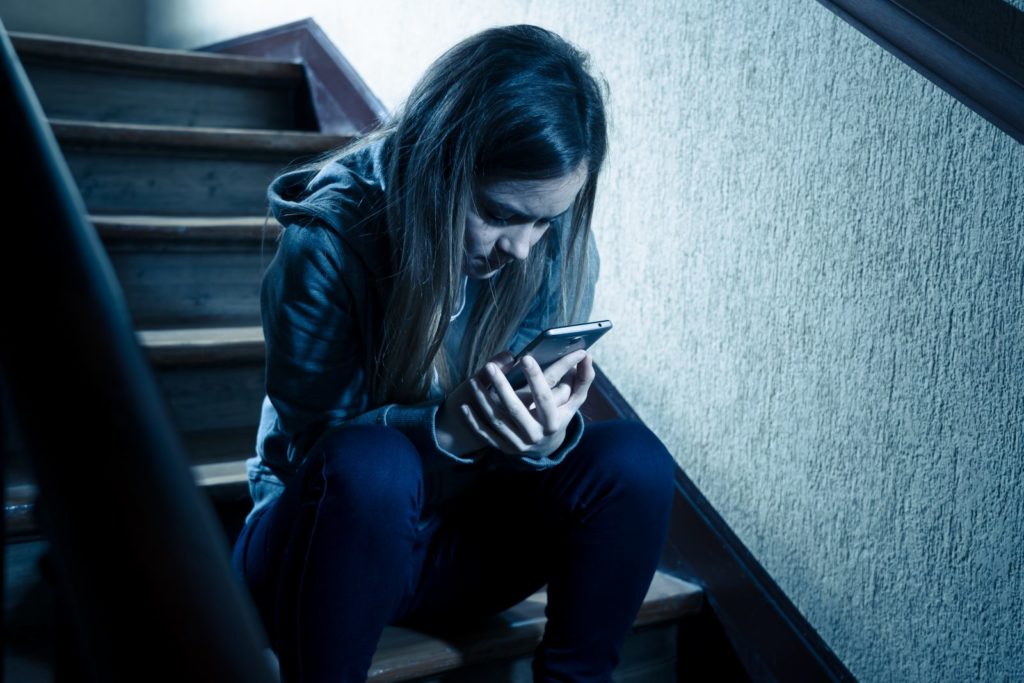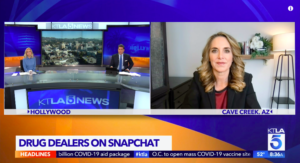Kids posting inappropriate content online is bound to happen. From scantily clad photos to polarizing points of view to racist memes, chances are your child or someone they know will post something that can have serious backlash not only at the time of posting, but for years to come thanks to their digital footprint.

In my line of work, I see a lot of kids posting things they shouldn’t. The most classic example: sexting, which isn’t just inappropriate, it’s also illegal and called child porn.
But, that’s not all kids post.
Although racist memes, xenophobia and anti-semitic are all awful, there’s plenty more that could be considered even worse. In fact, this year a local school district fell victim to one 12-year-old’s inappropriate — and dangerous — post.
Dressed up in army gear and posing with a gun, the pre-teen sent an image on iMessage to 47 people telling them not to come to school. Naturally, this was a major cause for alarm. The boy didn’t even mean to post as a threat; he thought it was funny. His 12-year-old brain sent it out without thinking of the repercussions. Now? Who knows what his future holds for him.
Which begs the question, why do kids post inappropriate content online?
- Developmentally, kids brains think what they post is silly, funny or interesting, even when it’s not. I compare it to an adult having a few glasses of wine and then posting something on social media. What you write under the influence is very different than your sober posts.
- Kids want to be relevant. Gone are the days when it’s cool to be popular among 100 peers. Now, it’s cool to be relevant in an online world of millions of people. And, to do that, you’ve got to post shocking content sometimes.
- Finally, kids are often dared to post things and don’t think about short term game being a long term loss.
What should you do if your child posts something inappropriate online?
- If your child comes to you and informs you they have posted something they shouldn’t have online, or if you see your child post something inappropriate online (which can be difficult since kids often have secret social media accounts), you’ve got to do damage control. There are a few options: you can delete the post and pretend it didn’t happen (more on that in my next point) or respond to the post. Deleting is the better option. Sometimes if parents start responding to a post, it can cause more harm with parents coming under fire, too.
- As I mentioned, deleting the post is the better option, but deleting the account is the best option. The only way to truly remove an inappropriate post from social media is by deleting the entire account. Remember, even if you delete a post from an account, the platform still holds all the account data on their servers, so as long as the person has an account, it can resurface. That information you thought was deleted can be flagged as relevant and anyone buying data from these platforms can see what was posted.
- Not only that, but inappropriate posts can serve as the deal breaker for people applying for security clearances or for those who want to be in the public eye. Social media platforms have the right to distribute and disseminate anyone’s content however they want.
- Make sure to talk to your child about the conversation they have with themselves after they post something inappropriate. Are they saying they are a “bad person” (shame) or saying they “did something bad” (guilt)? A lot of times kids get into a world of self harm and depression following posting something they should not, so it’s important to talk to them and normalize the idea that we all make mistakes.
What can parents to do make sure their child doesn’t post inappropriate content online?
Talk to your kids. Have the conversation with them about how they want people to see them and how they want to be seen. It all boils down to character and what kids do online when someone isn’t looking is a factor in what defines them.
For even more information, enroll in our Home Program and learn how to keep your kids safe online today.




